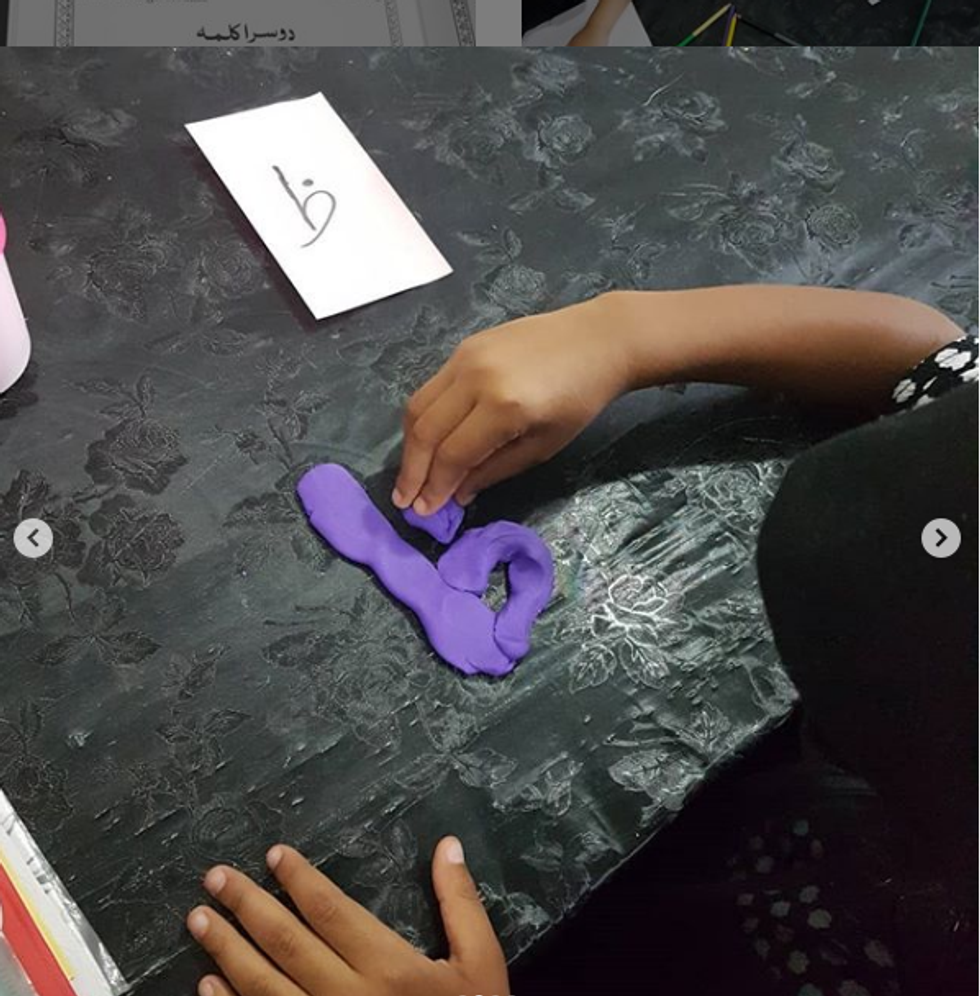Teaching the kids the Qaidah pays off in both the rewards and effort. Yes, it takes a whole ton of patience and creativity but in the end, each letter and rule that you teach them will leave you with infinite rewards whenever they start reading the Quran. A few things that I found challenging were trying to keep my 4-year old student's attention while at the same time explaining tough concepts to her. Along the way, however, I was lucky enough to stumble upon some really helpful resources and tips that made the process so much easier.
Finding a Qaidah

This is one of the most standard Qaidah for kids to learn with. It's all color coded inside and slowly introduces new lessons without making kids overwhlemed. Also, you will find more online reasources for this type of Qaidah that for others.
Follow Along With This Channel
These videos are detailed lessons of the Nuraniyah course taught by Imam Hassan in Al-Ansar Center. He really breaks it down. Sometimes if I had a hard time trying to explain certain concept or sounds I would turn to this channel. He really breaks down each lesson and words and logically explains it. He leaves you with almost no questions and a lot of confidence when teaching your students.
Realize Your Students Pace

Every student learns differently. Some can be super slow and some can be very fast. For students who learn really fast it is important to practice and review lessons with them because they can forget as fast. For those students who take a long time to get a concept, they may need visual or hands-on assistance. The best part of the Qaida to provide this assistance is in the beginning when learning the vowels and sounds. You can use playdough and allow kids to shape out the letter that you say or a colored pencil and tell them to draw the shape of the letter that you pronounce. You can also do this with the vowels (fathah, kasrah and damma). For example, you can ask them to draw the letter ب and then pronounce a vowel sound with it like "bi", "bo" or "ba". The challenge for the child would be to draw the shape of the vowel that corresponds to the pronunciation you made.
Make It Entertaining
You never want to bore a child away from learning Qaida. Try making up stories about the letters like how the letter ج sounds like the letter "J" from "candy jar" and the little dot in the belly of the letter is actually candy. Or maybe the story of ب the boat who had a small fish, represented by the dot, swimming underneath. The playlist above has just some of the creative stories that you can use to teach your students different rules. Sana Dossul's channel, in particular, is one of those gems that really makes it so much fun to teach young kids.
Attitude And Reward

The first day of class you should have an established list of rules. Like pointing at the qaidah when reciting, saying Bismillah when starting and not trying to grab toys or flip the pages without the teacher's permission. You have to try and find a balance between strict and fun. You can't have your student becoming so relaxed that he or she doesn't want to do the qaidah anymore or treats the qaidah like any other toy. The best way to do this is by rewarding them and keeping a smile on their face. For me, I made a secret handshake with my student, which we would use every time she did an excellent job on a certain word. I also use to keep a little surprise at the end of the class usually choclate so that I could bring her attention back to the qaidah instead of her toys. In order to make the surprise an actual reward I only gave it to her when she paid attention and listened but if she didn't I wouldn't give it to her. This allowed for her to take the surprise as a serious challenge and she paid attention more when she realized that the possibility of her missing out was real.
Understand What Everyone Wants

Before committing to teaching a student, especially one-to-one make sure that you know what the parents are expecting and what you are expecting. This includes setting up payments (if that's what you decide to do), talking to the parents about timings, kids schedules and where they are at in terms of the Qaidah. It is also important for you to sit down and form your own plan because it turns out you are the teacher and therefore you can't always let the parent overpower your teaching method.
Do Not Rush

You really have to take it one step at a time, it's not a race. More than likely you will have to repeat the Qaidah at least 3 times before moving on the Quran especially if your student is 5-6 or younger. It's a big responsibility for a young child to jump into the Quran and you want to make sure that their foundation is solid. Because once they start reading and memorizing its hard to fix anything. Don't feel pressured by parents or the child's age take it one step at a time.
Make sure they know the importance

Often times your student will already know a couple of surahs by memory before they start reading the Qaida. Make sure that once you covered a certain lesson you connect it back to what they already know from surahs they memorized. Before teaching really try to focus on why and how this will help the student with eventually reading the Quran and why the Quran is important in our deen.














